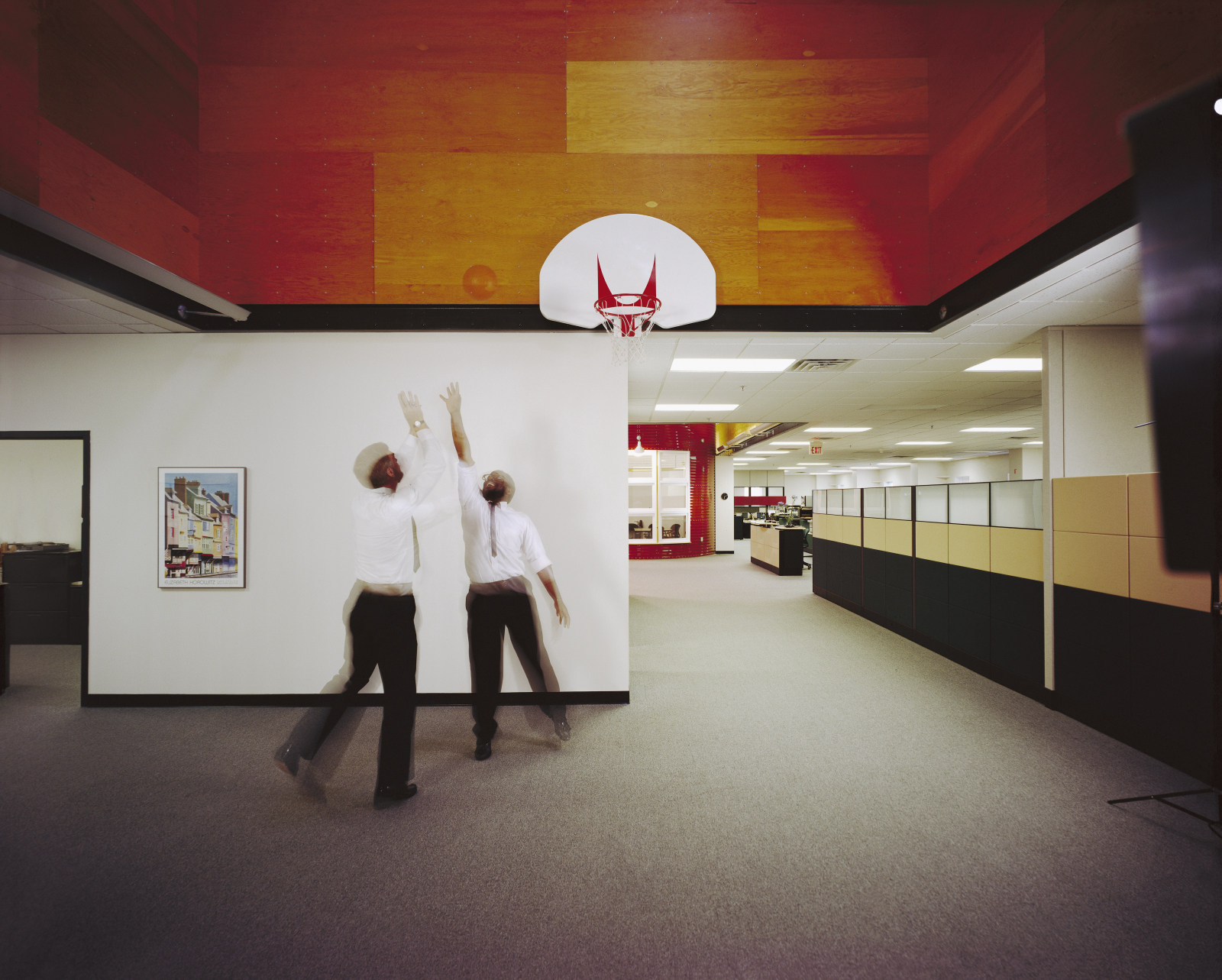Welcome to the 2024 Special Edition!
This year’s °®¶ąapp’s US theme “Corporate Campus” has sought to “explore and understand the influence of suburban corporate architecture and corporate campuses on the edge of more urban cores, their peaks, and now their valleys.” In a post-pandemic world, and in the past year in particular, the evolving role of the corporate campus, and the office in general, has proven to be on trend across culture. Alexandra Lange started off the year with a deep dive into recent corporate campus adaptive reuse projects and “,” for Bloomberg. Conversations continue around “return-to-office” and the of the office as a place has been covered everywhere from to .
Working in the archives at MillerKnoll, and with collections that detail the development of furniture for the office, has made the assignment of editing this special edition newsletter especially rich. It also provides the opportunity to republish one of my favorite documents in Herman Miller’s collection that provides a unique view into how the company briefed its own architecture projects. In addition to republishing this document from our archives, I’m excited to share the following three articles from esteemed authors that cover some of the earliest, and most iconic, modern corporate campuses:
In addition to republishing this document from our archives, I’m excited to share the following three articles from esteemed authors that cover some of the earliest, and most iconic, modern corporate campuses:
- In , Sasaki’s James Miner revisits the development and importance of landscape architecture in three of Hideo Sasaki’s mid-century corporate campus projects: Upjohn, Bell Labs, and John Deere.
- Susan Singh highlights the as an historically significant artifact of 20th-century American concrete construction and building technology, whose innovative structural framing and labor-crafted thin shell concrete “hypar umbrella roof ”designed by Felix Candela influenced later architectural designs.
- In , Shelby Long details the ways that Albert Kahn’s Ford Engineering Laboratory has been renovated and adapted over its 100 year history.
- In 1970, then Herman Miller CEO Max De Pree began a poetic brief for a Herman Miller manufacturing facility in the United Kingdom by stating, “Our goal is to make a contribution to the landscape of aesthetic and human value.” The building that resulted from what became titled A Statement of Expectations was a pioneering High-Tech project by Nicholas Grimshaw that recently saw its own into, very fittingly, an art and design school. We are happy to share a story originally published by Herman Miller’s WHY Magazine in 2014 that tells the story of , and Herman Miller’s collaboration with Grimshaw.
It was a thrill to see the overwhelming interest in this year's annual theme. °®¶ąapp received a record number of proposal submissions and will publish a second installment of this special edition newsletter in October, with even more perspectives of the modern corporate campus.
Thanks for reading!
Amy Auscherman
Director of Global Archives and Brand Heritage
MillerKnoll
